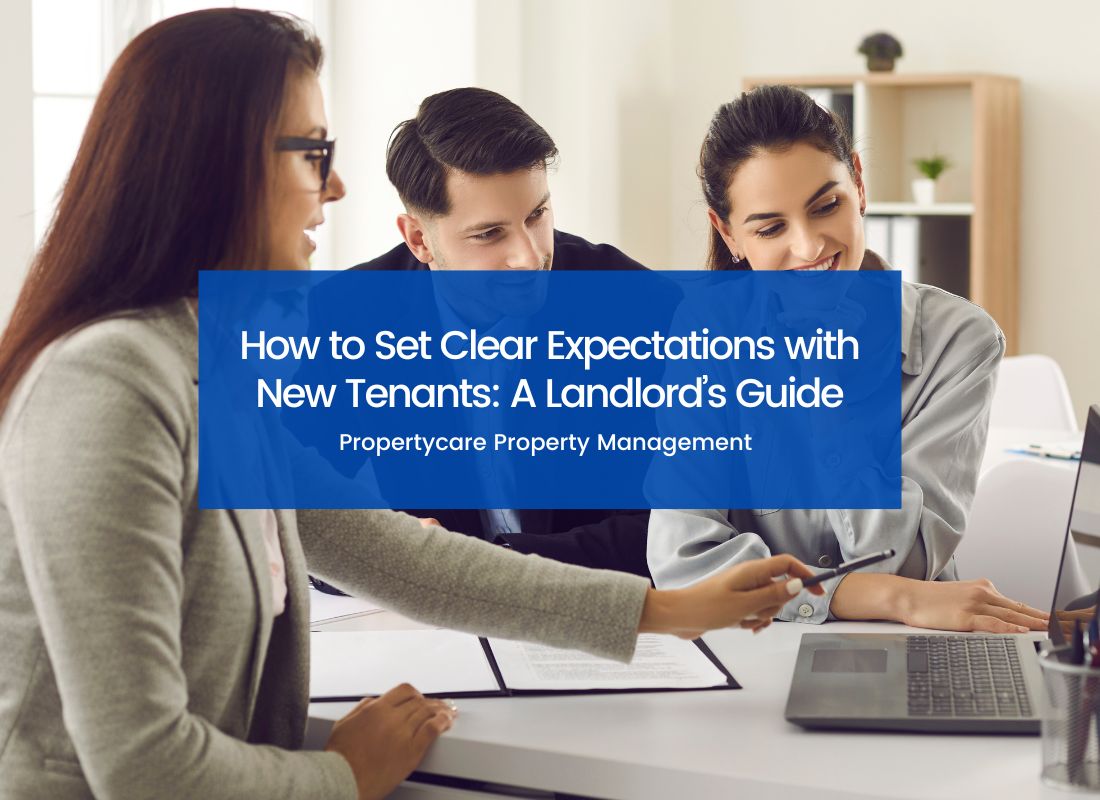Key Takeaways
- Setting expectations early helps prevent misunderstandings by ensuring tenants fully understand the lease terms, their rights, and their responsibilities from the very start of the tenancy.
- Clear communication about rent, maintenance duties, and reporting procedures reduces confusion, supports legal compliance, and promotes timely issue resolution throughout the rental period.
- Defining what constitutes normal wear and tear versus excessive damage protects the property, helps tenants understand their obligations, and minimizes disputes related to repairs and security deposit deductions.
Once you’ve successfully rented out your home, you need to set clear expectations with the new resident. This ensures that everyone is on the same page regarding property policies and lease terms.
Have them go through the rental agreement carefully and understand all of their rights and obligations. Also, make yourself available to provide clarity on whatever questions they might have. Doing so reduces miscommunication and conflicts throughout the tenancy and also sets the foundation for a solid landlord-tenant relationship.
But how exactly do you go about setting expectations with your new tenants? In this blog by Propertycare Property Management, you’ll learn how to communicate policies and expectations to ensure a smoother rental experience for all parties involved.
Inform Resident of Their Rent Obligations
Rent is the foundation of your rental investment, so it’s essential that residents have complete clarity rather than relying on guesswork. From the outset, provide all necessary information to ensure they understand their obligations.

Clearly state the rent amount for each payment cycle, as well as when rent must be paid. Additional rent-related details to include in the lease are:
- Whether There’s a Grace Period - Make sure to comply with any local regulations on the same. In the state of Texas, for instance, landlords are required to provide residents with a 2-day mandatory grace period before charging a late fee.
- The Amount of the Late Fee - Again, check for what state and local regulations say about any maximum limits. Texas state law requires that landlords charge no more than 10% of the rent for buildings with fewer than 4 units. For buildings with more than 5 units, the maximum late fee is 12%.
- Rent Payment Methods - Let the resident know which methods they must use to pay rent when it becomes due, whether that’s direct transfer, online payments through a portal, check or, cash.
- Rent Increase Policies - Make sure tenants understand how and when they might receive rent increase notices. If you’re seeking to adjust the rent price at the end of a lease term, make sure you follow Texas law.
Familiarize the Resident with Their Repair and Maintenance Duties
As a landlord, the bulk of the repair and maintenance responsibilities will fall under your purview. This is because state laws require that landlords adhere to the Warranty of Habitability and that all rentals meet the minimum safety, health, and building codes.

That said, residents also acquire certain repair and maintenance responsibilities after establishing a lease agreement. You can require them to handle the following minor maintenance responsibilities around the property:
- Replace burnt-out bulbs.
- Replace batteries in smoke and carbon monoxide detectors.
- Maintain the yard by weeding and mowing it.
- Ensure the unit remains clean and sanitary.
- Fix clogged plumbing systems.
- Fix damage exceeding normal wear and tear that they cause.
When tenants understand who’s responsible for which kinds of maintenance it can save all parties time and ensure that the residential rental property remains in good condition long-term.
Communicate the Process of Reporting Repairs and Maintenance Issues
In addition to explaining a tenant’s maintenance responsibilities, educate them on the process they must follow when reporting issues. Filing a maintenance request must be clear and streamlined to ensure issues are handled as promptly as possible.
State laws often define the time frame that landlords must abide by when responding to repair issues. In the state of Texas, for instance, landlords are required to make repairs within 7-14 days after getting a written notice from a resident. As such, it’s vital that you respond promptly to issues to remain legally compliant.

To reduce issues of conflict over property maintenance, have tenants notify you of issues promptly and let them know the urgency of reporting issues, depending on the type of repair. For all non-urgent issues, have the resident submit a request in writing and work with them to coordinate a time to address the issues.
Tell Resident Your Policy on Property Damage
Let the resident know that property damage is considered a violation of the rental agreement and that it includes any negligent or reckless damage they or their guest make to the property, whether intentionally or accidental.
For clarity, explain to them that normal wear and tear is the type of damage that results from normal property degradation. Examples include loose door handles, minor scuffs on carpet, faded paint, and sticky doors.
Excessive property damage, on the other hand, refers to that which occurs after a resident’s negligence or reckless actions. Examples of these include broken windows, rips in curtains, unapproved paint jobs, and large holes in walls. Remind tenants that they could lose part or all of their security deposit to cover the cost of fixing excessive property damage.
Bottom Line
Setting clear expectations with tenants from the onset ensures a smoother rental experience for all parties. Drafting a solid lease agreement is also key to minimal conflicts and misunderstandings. If you need help managing your rentals, consider working with a professional company.
Propertycare Property Management can help you draft foolproof rental agreements that help foster a solid landlord-tenant relationship. What’s more, we can handle all your property management needs including property marketing, resident screening, repairs and maintenance, and more.
Get in touch for all your Houston property management needs!


